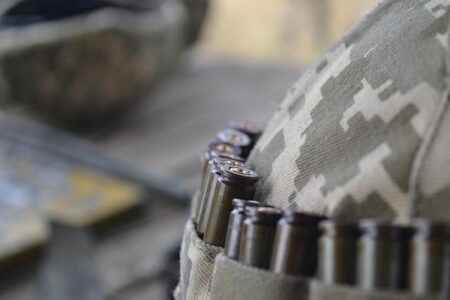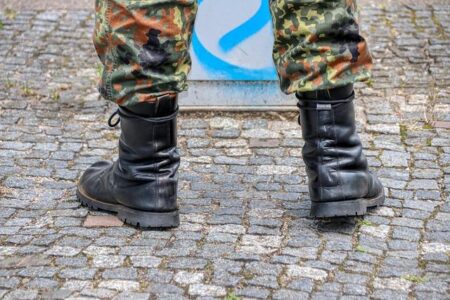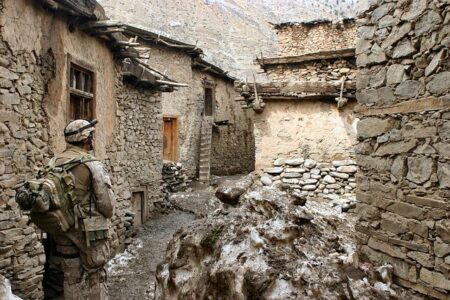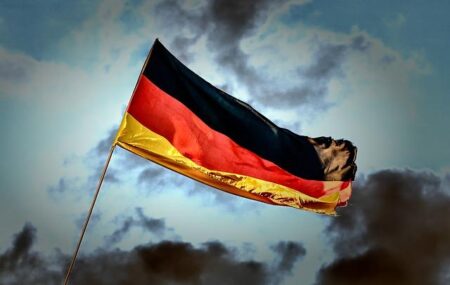Russia’s hopes for a trans-Atlantic split at the Munich Security Conference were dashed as Western unity held strong. Experts emphasize that Moscow’s attempts to sow discord among allies faltered in the face of steadfast NATO solidarity
Browsing: NATO
NATO chief raises alarm over “crazy losses” among Russian forces in Ukraine, exposing the brutal reality of heavy Russian casualties amid the unyielding conflict. This sobering assessment underscores the escalating intensity and rising stakes of the war
Germany’s Bundeswehr is preparing for a significant boost in military spending, set to enhance defense capabilities in response to escalating geopolitical tensions. This move signals a bold and transformative shift in Berlin’s defense strategy
Ministers in Germany and France fired back sharply after US President Trump boldly declared that the US had “never needed” its European NATO allies. Germany’s defense minister didn’t hold back, demanding a formal apology from Trump. Read more: https://p.dw.com/p/57UQG
A top German general has delivered a stark warning: a war between Russia and NATO could be looming sooner than anyone expects. As tensions escalate and military forces gather, this urgent alert underscores the growing fears over Europe’s fragile security
Germany is swiftly boosting its military power amid rising geopolitical tensions. This decisive action marks a dramatic departure from post-Cold War policies, as Berlin strives to strengthen its defense forces and fully uphold its NATO obligations
German Chancellor urges Europe to slash red tape and boost defense spending amid rising geopolitical tensions. Emphasizing the strength found in unity, the leader calls for swift action to fortify Europe’s security capabilities
Australian Prime Minister has fiercely denounced former President Trump’s remarks on NATO troops as “completely unacceptable,” highlighting the crucial need for alliance unity. These statements have sparked significant diplomatic tensions, reports france24.com
Former President Trump’s recent remarks downplaying NATO’s role in Afghanistan have sparked fierce backlash in the UK, with officials condemning them as “the ultimate insult” to the unwavering commitment and sacrifices of allied forces
In a rare and revealing moment, France’s President Macron and NATO’s Secretary General unveiled letters addressed to former President Trump, offering a glimpse into urgent diplomatic appeals amid escalating global tensions, as reported by the Oskaloosa Herald
Spain is set to unleash a staggering €33.1 billion investment in military modernization, signaling an unprecedented commitment to NATO. This ambitious initiative aims to supercharge defense capabilities and confront the escalating security threats challenging Europe today
German military personnel are gearing up to arrive in Greenland, signaling a bold move to strengthen ties with Denmark. This deployment aims to enhance Arctic security amid rising geopolitical tensions in the region
Germany has joined forces with NATO allies on a symbolic mission to Greenland, drawing sharp attention to the Arctic’s vital strategic importance amid rising geopolitical tensions. This deployment underscores the West’s growing dedication to safeguarding the Arctic region
France and other NATO allies have deployed troops to Greenland for joint military exercises, signaling a powerful new chapter in Arctic strategic cooperation following talks with U.S. officials Vance and Rubio, ABC News reports
Europe is facing rising challenges in protecting Greenland amid soaring Arctic tensions. France 24 explores the daring strategies European nations are preparing to deploy to secure this crucial territory against growing geopolitical threats
The UK and Norway have stepped up to champion NATO’s daring new “Arctic Sentry” mission, now extending its vigilant watch all the way to Greenland. This strategic leap aims to boost surveillance and fortify defenses as Arctic tensions escalate, reinforcing NATO’s grip on its crucial northern frontier
France and Germany have joined forces in a groundbreaking European troop deployment to Greenland, strengthening Arctic security amid rising geopolitical tensions. This collaborative mission highlights Europe’s growing commitment to safeguarding this crucial and strategic frontier
France’s daring decision to remilitarize has reignited deep-rooted tensions, casting the shadows of history back into sharp focus. This bold move sparks a fiery debate over security, sovereignty, and the future of Europe’s defense landscape
Germany is gearing up to strengthen its role in Arctic military security, Foreign Minister Johann Wadephul revealed during his visit to Iceland. He highlighted the region’s growing geopolitical importance as global tensions continue to rise
European allies have come together with unwavering resolve, forging a landmark pact to enhance Ukraine’s defense. This bold agreement ramps up military aid and intelligence sharing, signaling a powerful leap forward in their united commitment amid the ongoing conflict




















